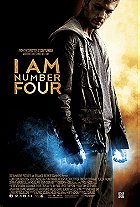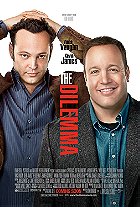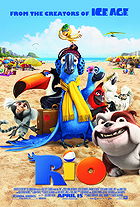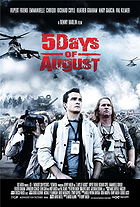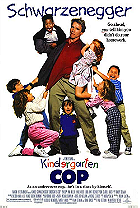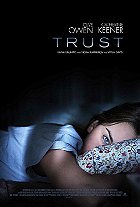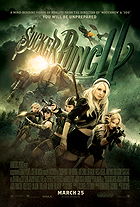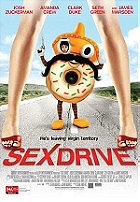Since mid-2010, an aura of mystery has shrouded J.J. Abrams' Super 8 like a dense fog. From its initial teaser trailer over a year before its release to a series of elliptical trailers and its substantial but mysterious marketing campaign, movie-goers have been wondering exactly what it is. In short, 2011's Super 8 is a nostalgia-dipped, Steven Spielberg-indebted science fiction thriller and a coming of age story; representing a homage to producer Spielberg and a valentine for those who have had a passion for filmmaking since childhood. Super 8 is a rare type of summertime release in this day and age - it conveys a clever, original story (it is not a sequel, prequel, spin-off, reboot or literature adaptation) without the necessity for a third dimension. There are state-of-the-art special effects and a few big action sequences, sure, but neither elements are gratuitous since, unlike most summer blockbusters, Super 8 is more interested in characters and storytelling than big bangs. In writing and directing this film, Abrams remembered a simple law from Filmmaking 101 that is commonly ignored by contemporary popcorn movie peddlers: that action and mayhem only has weight if the viewers can find themselves caring about the people in the midst of the chaos.

Named after a type of filming format that child filmmakers used before the advent of digital video cameras and Final Cut Pro, Super 8 concerns the misadventures of six young tweens who find themselves in the wrong place at the wrong time. Set in 1979, young Joe Lamb (Courtney) is in mourning following the death of his mother, leaving him with his distant police officer father (Chandler). With school over and the summer in full swing, Joe occupies himself by helping best friend Charles (Griffiths) make a zombie movie starring Joe's crush Alice (Fanning). While filming late one night in secret, the gang of kids watch as a train spectacularly derails in front of them. Afterwards, a survivor of the crash informs the gang to tell nobody of what they saw else they be killed. Within days, their peaceful little town is suddenly overturned by a heavy military presence, inexplicable happenings, and disappearing people. Not to mention, the boys' Super 8 camera captured sight of something monstrous escaping the train following the derailment.
As those who paid attention to the marketing should be aware of, Super 8 is the brainchild of J.J. Abrams and producer Steven Spielberg, and it therefore plays out like a sweeping love letter to the generation raised on Spielberg's crowning achievements. Essentially Stand by Me meets The Goonies on a Cloverfield stage, Abrams additionally infused the picture with a semi-autographical element, recalling the days when he - like most future filmmakers - borrowed his parents' video camera and made a home movie. Super 8 is not merely a film built on a basis of set-pieces and special effects, but a look back at an era marked by bike rides, small town sensibilities and working class concerns - a time when kids went outside and were adventurous, rather than staying indoors to watch movies or play video games all day. However, there are a few Hollywood touches that are hard to swallow, such as someone still being alive after driving head-on into a freight train. The ending, too, seems abrupt and rushed; not being able to wrap up everything with the same care and intelligence that preceded it.

Abrams once again demonstrates here what an excellent craftsman he is; bestowing the film with a number of moments of nail-biting intensity and tension. In fact, some scenes could almost classify the film as horror. Super 8 may be characterised by the children at the centre of the narrative, but this is not a film specifically designed for small kids, who will likely find the film too scarifying. Abrams chose to replace the gentler tone of Spielberg's earlier cinematic oeuvre with something edgier. Abrams also chose to abide by the Jaws approach, keeping the mysterious monster out of view for the majority of the runtime, building suspense by holding back and only allowing the audience quick, fleeting glimpses of certain body parts. Not to mention, most action movies these days succumb to the awful habit of "shaky-cam/rapid-cutting", letting details and comprehension fall by the wayside. However, Abrams always ensured the camera was impeccably placed, allowing viewers to fully comprehend the scope. The train crash alone lasts for two or three minutes, and it will keep you in the edge of your seat with your mouth agape. This master craftsmanship extends to the quieter moments as well, which are engaging and interesting.
The film takes place in 1979, and the period was vibrantly recreated with astonishing detail through immaculate production values. Era-specific cars, clothing, and songs (including tunes such as My Sharona by The Knack and other songs by Blondie, Paul McCartney, etc) all help to sell the time period and vibe. Super 8 anchors fantasy in a real-world setting, and thankfully Abrams infused the real-world setting with relatable characters and emotional undercurrents to help us care about everything happening on-screen. The bond between all the young boys, particular that of Joe and Charles, rings with accuracy and depth, and the relationship that emerges between Joe and Alice is sublime as they spend time together despite a feud between their fathers. Also captured winningly is the dynamic between all the boys - their conversations, playful bantering and occasional cursing will probably remind viewers of their own childhood. Not to mention, the boys' joy and elation in no-budget home moviemaking (an autobiographical element from the childhoods of both Abrams and Spielberg) is affectionately depicted, and the way they continue to shoot their movie pays off in a big way during the not-to-be-missed closing credits.

The performances were of primary importance in making the film work, and, thankfully, Abrams populated Super 8 with a pitch-perfect ensemble of child actors, all of whom present natural performances of profound depth. Joel Courtney (in his professional debut) is a real find, as his portrayal of Joe is mature and completely believable. The most experienced member of the cast here is Elle Fanning as Alice, who is phenomenal; emerging from the shadow of her older sister with this superbly nuanced piece of acting. For every moment she's on-screen, Fanning's face paints a complete, poignant picture of who her character is and what she's going through. For a child actress who was a mere 12 years old during filming, Elle is remarkable. Equally valuable is Riley Griffiths who's utterly convincing as Charles (the one whom this reviewer could identify with the most). Every member of the group is a joy to watch, and each possess their own unique quirk to prevent them from being an anonymous part of an ensemble. Ryan Lee is a great source of comic relief playing the explosion-loving pyromaniac, while Gabriel Basso impresses mightily as the main actor of the boys' movie. Also first-rate is Kyle Chandler, who simultaneously supplies authority and vulnerability. Simply put, everyone did a marvellous job here, affording Super 8 the realism that the material demanded.
Commandeering his third feature film as director (after Mission: Impossible III and Star Trek), J.J. Abrams exudes passion and talent as a filmmaker, and with Super 8 he delivers solid storytelling, multidimensional characters and creativity - all within the confines of a $50 million 2-D summer blockbuster. In many ways, this is a perfect summer movie: original, earnest, innovative and creative, not to mention it has all the requisite fireworks and pizzazz but you do not need to halt your brain functions in order to enjoy the show.
8.7/10
 Login
Login
 Home
Home 183 Lists
183 Lists 1671 Reviews
1671 Reviews Collections
Collections
 0 comments,
0 comments, 